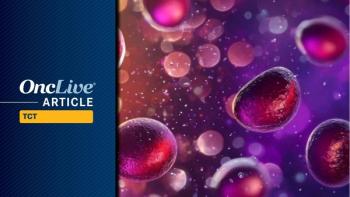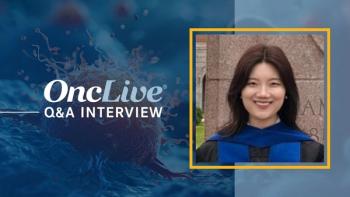
Mantle Cell Lymphoma: Chemotherapy-Free Treatment Options
Transcript:
Michael Wang, MD: You’re asking me, how do we use the BTK inhibitors in combination, how to best take advantage of its safety and efficacy? As I pointed out before, we’re moving from chemotherapy to chemotherapy-free therapy. The reason why is because chemotherapy oftentimes attacks the DNA, and if several drugs work the same way to attack the DNA, please remember this drug is infused in the blood. It does not attack only the DNA of lymphoma, but it can also attack every living cell, their genome in the body. Occasionally, it goes down and chronically, long term, after chemotherapy, another cancer appears, totally unrelated to the primary cancer. What do we call this? Secondary cancers, including very bad cancers like lung cancer, pancreatic cancer, colon cancer, any cancer you name, and a very bad one called MDS myelodysplastic syndrome and leukemia. MDS is a form of leukemia. Because of a severe consequence, acute and delayed consequence of chemotherapy, we try use chemotherapy-free therapies.
The chemotherapy-free therapies, when they are combined with like antibody therapies, are very powerful. For example, the rituximab-ibrutinib therapy has a response rate of 80% in the relapsed population, 100% when you use it in the first line. I have no doubt there are many combinations with acalabrutinib. I have no doubt zanubrutinib will also be combined with monoclonal antibodies, with BCL2 inhibitors, with other chemotherapy-free therapies, so that chemotherapy-free therapy would replace chemotherapy, the toxic, acutely and chronic toxic chemotherapies. This is 1 of the great directions that the field is moving to. In the past, the patients come here and say, “Dr Wang, I want to do whatever, use whatever you have, cure my lymphoma, get rid of it.” This time they come to my clinic and they say, “Dr Wang, I want you to get rid of my lymphoma by not using chemotherapy.” You can know how important the chemotherapy-free therapies and their combinations are.
Transcript Edited for Clarity




































